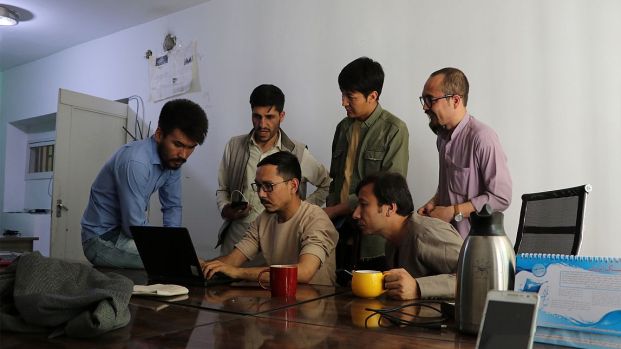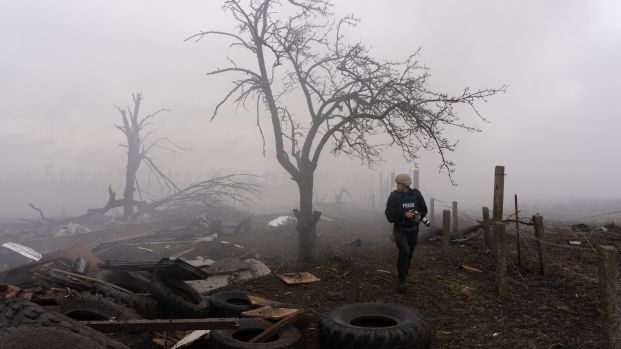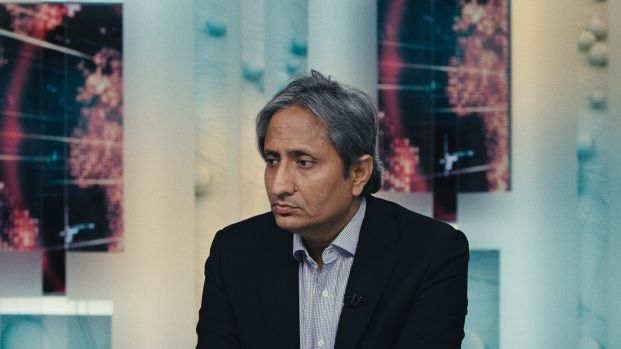
Somalia is one of the hardest places in the world to be a journalist. I know, because I spent 44 days in detention – persecuted for trying to defend press freedom and ethical reporting.
Firstly, journalists in Somalia face incredible physical danger. It’s the most hazardous place in Africa to work as a media professional. Then there’s the intolerance and corruption of the government, which arrests its critics and shuts down media houses. A total of eighty-four journalists were detained in 2022.
Finally, there’s the sheer logistical difficulty of leaving the urban areas to do your job and report freely on Somalia’s life-threatening drought and hunger.
As the Secretary-General of the Somali Journalists Syndicate (SJS), I thought I’d seen it all. That was until I was detained and began a nightmarish journey through Somalia’s criminal justice system.
My journey began on 11 October 2022, when I was stopped at Aden Adde International Airport in the capital, Mogadishu, as I was about to board my flight to Kenya to visit my family. National Intelligence and Security Agency (NISA) officers took me from the airport to Godka Jila’ow, a notorious underground detention centre.
I knew what it was about. The day before, the SJS – along with other professional journalist groups – had issued a statement condemning a vaguely worded directive by the ministry of information banning the media from quoting al-Shabab’s ‘lies and propaganda’. We argued that the order, given without consulting with media organisations, threatened legitimate expression and press freedom.
In Godka Jila’ow, they interrogated me for eight hours. At 1 am, they locked me in a tiny concrete cell with no lighting or ventilation.There were roughly twenty cells identical to mine. I could hear screaming coming from some of them. That first night, I thought I was going to die.
After two more days of questioning and repeated threats, I was taken to another detention facility – this time run by the police – where they held me for eleven more days.
‘Bringing the nation into contempt’
The office of the attorney general had brought three charges against me, including an accusation of ‘bringing the nation into contempt’.
Days earlier, officials at the Ministry of Information had contacted me to try and make a deal. They would allow me to leave the country if I agreed to stop criticising the government and made a full apology. I declined.
After being charged, I was released, but only under travel restrictions that prevented me from flying to Kenya for medical treatment for a kidney infection and an eye allergy that had flared up during my incarceration.
The next step was trial. The authorities had replaced the judges at the regional and appeals court – a move that seemed designed to negatively influence the verdict in my case.
On 13 February, following four court hearings, I was sentenced to two months in jail. But prison officials refused to implement the decision. When I was taken to Mogadishu central prison, the officers there said I had already served five months under various types of confinement and gave me back my freedom.
But this was short-lived. Ten days later, armed men from the police and NISA detained me again as I met with lawmakers from the federal parliament in a Mogadishu hotel. I was held captive in a private house in Mogadishu’s Bondhere district for a day and a half before being taken back to Mogadishu’s central prison.
I spent more than a month there, sharing a cell with forty-one other inmates. There was little water, the hygiene conditions were extremely poor, and prisoners frequently fell sick.
Finally, after thirty-three days without any documentation or explanation, I was released.
The problem with impunity
I have now been reunited with my family in Nairobi, but I am angry. I have been attacked and persecuted solely for pursuing my profession as a journalist and for advocating for human rights and press freedom.
I am also angry because I want so much better for my country.
More than twenty years on from the dark days of clan warfare, we have federal and state governments that are still committing human rights abuses and escaping the accountability that is essential to achieving justice and lasting peace.
The international community – including the UN, the EU and the African Union – must break their silence and call out the crimes being committed by a corrupt government that they continue to support both financially and politically.





